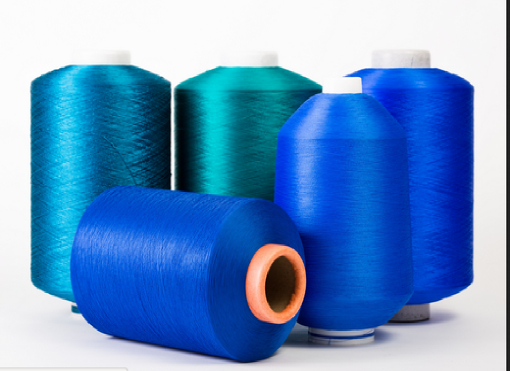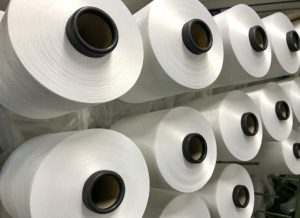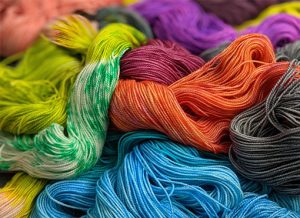Nylon yarn suppliers in India and its demand has grown at 5% after CAGR during 2015-2020. As anticipated by CAGR forecast period. Being the largest manufacturer globally after China, India has started the use of nylon filament yarn rapidly in day to day materials such as sarees, scarves, carpets etc and its increasing consumption has anticipated India’s NFY market drive through 2030. Used for apparels, home textiles, semi-industrial products and undergarments. Nylon is bifurcated into Nylon 6 & Nylon 66.
Talking about the myths of nylon yarn suppliers in India at the moment, the square focus of commercial interiors in the world is the issue of not using healthy materials, But now is the best time for the industry to know about the myths about the nylon yarn and its suppliers carry on accordingly.
- Myth 1- Nylon yarn is difficult in processing hence suppliers are using low form techniques- False
There are amazing benefits of using nylon yarn in India and suppliers mostly use amazing techniques like Ease of dyeing, flexing and high resistance to abrasion, resistance to knotting, which ultimately enhance its strength and durability - Myth 2-With cheaper imports from countries like Taiwan, China and Germany lead to a slight hamper to the domestic Nylon filament yarn market in India. Because most of the domestic purposes are met. -False.
To the benefit of the Indian market, the imposition of Anti-Dumping Duty in 2018 on imports from EU and Vietnam has encouraged local players to enjoy a competitive advantage. hence About 7 % of India’s production contribution in industrial and 4% to country’s GDP textile sector in India is believed to grow in near future leading to an ultimate growth to nylon texture yarn in India. - Myth 3- Cotton availability at competitive prices in India restricts the growth of Man-Made Fiber industry – False.
It turns out that cotton availability in long terms tends to unevenly drive the overall market. It’s then what shines is the Nylon Yarn industry in India as it is petrochemically driven. - Myth 4- ‘Nylon textile yarn free ‘suppliers are the number one thing to look for in-home textile – False.
Although instead of the scrutiny from NGOs, Nylon filament yarn is not the only one concern that experts have about chemicals in home textile making. As it is PVC is an inert plastic, it’s non-toxic to use. Additionally, almost all the additives are once associated with flexible vinyl backings have been phased out of US textile production. - Myth 5: No hazardous ingredients in Red List Free products – False
Red List has become a popular short-cut in recent years for attempting to avoid building products containing hazardous chemicals. but it’s not true that red list materials are completely non-hazardous, on the contrary
Red List has always been known for banning products containing PVC plastic. But in reality, the vast majority of the PFAS chemicals on the market are not removed hence, most “Red List Free” yarn currently installed in certified buildings could be coated with PFAS stain resistance chemicals. - Myth 6: Natural material suppliers make the healthiest fabric – False
- Talking of hand-made wool or jute bags dyed with a lot of local minerals or plants, then maybe this is a huge fact. But on the contrary, it doesn’t hold for commercial textile use. Because, as it has been said by the great experts: “God did not design the sheep to resist a red wine stain.”
- Myth 7- The downside of natural Fibers are better to than of nylon filament yarn- False
Natural dyes nor natural fibres are not the first obstacles to hold up well to heavy foot traffic. So the introduction of chemical dyes was made and -PFAS stain resistance treatments are carried out.and as the home textile made of natural material loses its main attractive feature. So, why not go for Nylon filament yarn n keep it real - Myth 8- Buy products just because of its red list approved? – False
Instead, always ask manufacturers if they have phased out PFAS coatings from their business and are compelled into their company’s commitment to “healthy” products.




